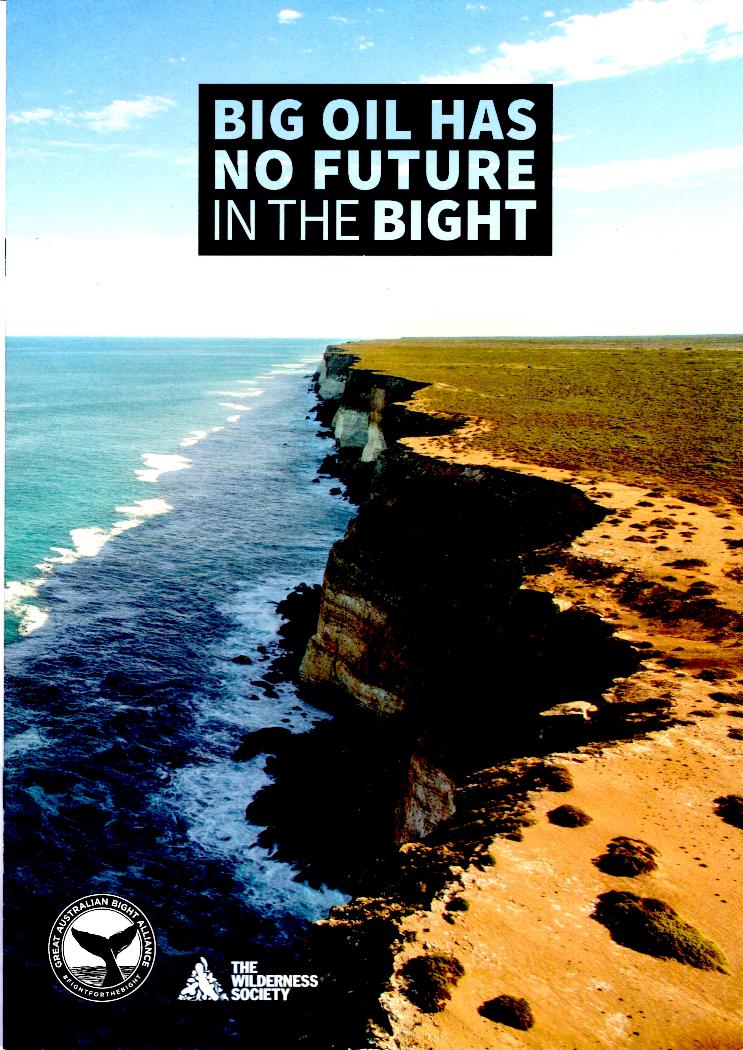 Nick G.
Nick G.VANGUARD - Expressing the viewpoint of the Communist Party of Australia (Marxist-Leninist)
For National Independence and Socialism • www.cpaml.org
Thousands of Australians from seventeen coastal communities have joined hands across the sands to protest offshore drilling and offshore seismic testing for oil and gas.
The annual “hands across the sands” movement began eight years ago in the USA following BP’s Deepwater Horizon oil spill in the Gulf of Mexico.
The Australian focus is on the Great Australian Bight where first BP (in association with Nowegian state-owned Statoil) and then US Chevron sought exploration licences. An alliance of Indigenous Australians, conservationists, tourism operators and commercial fishers campaigned strongly and forced BP and Chevron to abandon their plans. However, Statoil purchased the abandoned licences and is the new target of the movement.
What is wrong with deepwater drilling and seismic testing?
Deepwater drilling is a potentially dangerous process and oil spills have a devastating effect on marine and coastal environments. But it is the seismic testing that explores for oil and gas deposits below the seabed that really concerns environmentalists.
Seismic airguns are towed behind ships and shoot loud blasts of compressed air through the water and miles into the seabed, which reflect back information about buried oil and gas deposits. These blasts are repeated every ten seconds, 24 hours a day, for days and weeks at a time. Airguns are so loud that they disturb, injure or kill marine life. Impacts include temporary and permanent hearing loss, abandonment of habitat, disruption of mating and feeding, and even beach strandings and death.
A broad alliance
When a Liberal State Minister for Resources opposes seismic testing, you know there is broad opposition to the practice. Earlier this year, NSW Minister Don Harwin explicitly voiced his opposition to seismic drilling off Newcastle, arguing the federal guidelines that governed its approval were more lenient than state laws. The exploration licences were held by Asset Energy, a wholly-owned subsidiary of Perth-based Advent Energy whose board of directors has ties to a number of multinational energy corporations.
When a rural Mayor opposes seismic testing, you know there is broad opposition to the practice. Kangaroo Island Mayor Peter Clements campaigned against BP and Chevron, and travelled to Norway last week to attend the Statoil AGM and address shareholders on the dangers posed by their company to the Great Australian Bight. He had with him a letter from Bight Indigenous leader Sue Coleman-Haseldine, who visited Norway late last year as part of the group that won the Nobel Peace Prize, the International Campaign to Abolish Nuclear Weapons (ICAN).
“We write on behalf of people around the world that are fighting to protect their Country, livelihoods, and water from dangerous oil drilling and climate change,” Ms Coleman-Haseldine writes in the letter signed by locals from the Bight area.
“Consent to drill the Bight has been neither sought, nor given. Together, we ask that Statoil abandon their plans to pursue risky deepwater oil drilling in the Great Australian Bight, and around the globe.
“We call on Statoil to instead invest in our country in clean and renewable energy. Statoil must respect the Indigenous custodians of the land and sea from who you wish to extract oil and gas.”
When Indigenous leaders, leaders of local government, fishing and tourism industry leaders and surfies stand shoulder-to-shoulder outside the annual conference the Australian Petroleum Production and Exploration Association (APPEA), you know you have a broad alliance in defence of the environment. Ms Coleman-Haseldine, a proud Kokatha-Mula elder from Ceduna, joined the protest outside the APPEA conference in Adelaide on Tuesday of last week, as did Keith Parkes, the mayor of Alexandrina Council encompassing the Southern Fleurieu Peninsula and Murray Mouth. His Council has passed a motion opposing oil drilling in the Bight. “We are concerned about the risks posed by drilling for oil in the Great Australian Bight and the impact on our community should the worst happen and a spill occurs,” he said.
Semaphore sends a signal
 Semaphore is an iconic Adelaide beach-side suburb, host to the equally iconic Semaphore Workers Club. On May 19, some 3-400 people gathered for the “join hands across the sands” event. Indigenous elder of the West Coast Mirning People (the Whale People) Uncle Bunna Lawrie sang us into the event with a bracket of numbers that included “Jeedara”, his song about the White Whale. It begins with his eerily beautiful mimicry of whale calls which he said he hoped his brothers in the sea could hear. (See this Youtube clip for an earlier version of the song: https://www.youtube.com/watch?v=DYg7OwNtWME ).
Semaphore is an iconic Adelaide beach-side suburb, host to the equally iconic Semaphore Workers Club. On May 19, some 3-400 people gathered for the “join hands across the sands” event. Indigenous elder of the West Coast Mirning People (the Whale People) Uncle Bunna Lawrie sang us into the event with a bracket of numbers that included “Jeedara”, his song about the White Whale. It begins with his eerily beautiful mimicry of whale calls which he said he hoped his brothers in the sea could hear. (See this Youtube clip for an earlier version of the song: https://www.youtube.com/watch?v=DYg7OwNtWME ).
Greens Senator Sarah Hanson-Young recalled her meeting earlier in the week with Statoil reps at the APPEA conference. She said they were clearly unsettled by and fearful of their loss of a “social license” (public approval) for exploration and drilling in the Bight.
Wilderness Society South Australia director Peter Owen said that Statoil was so concerned about its image that it had rebadged itself as Equinor, removing the ugly “oil” word from its name. The name change had taken place at last week’s AGM. Statoil held its name for 46 years during which time it emerged as the largest operator in Norway, where it is 67% owned by the Norwegian Government. The move also indicates a company shift away from fossil fuels and towards a renewable energy future.
“A name with ‘oil’ as a component would increasingly be a disadvantage,” said Eldar Saetre, Statoil’s chief executive. “None of our competitors has that. It served us really well for 50 years, I don’t think it will be the best name for the next 50 years.”
Stand up, Bight back!
“Stand up, bight back!”, a placard carried at the APPEA Conference, expresses both the determination of the alliance against seismic testing and the influence of the methods of the organised working class. Regrettably, only one union had a visible presence at Semaphore: an Australian Education Union’s Environment Action Group banner carried by SA Branch vice-President Dash Taylor Johnson and his son.
The chief causes of the global environmental catastrophe are to be found in the capitalist system of profits-before-people. Working people everywhere bear the brunt of its consequences. Militantly, purposefully, locally and globally they must confront the power of imperialist capital and destroy that power so as to save the world and create a real unity of humanity and nature.